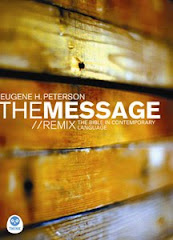THIS IS YOUR BRAIN IN LOVE (ESTE ES TU CEREBRO ENAMORADO)
 Aunque este no es de la clase de libros que usualmente tomaría, encontré interesante leer sobre la conexión que el cerebro tiene con la forma en que nos enamoramos y, más importante aún, como mantenerlo. En mi practica como pastor me preocupa mucho la cantidad de matrimonios cristianos que se van deteriorando a través de los años, matrimonios de años que cuando los hijos se van se destruyen, o matrimonios jóvenes donde ambos en la pareja tienen pocas expectativas de que su matrimonio sobreviva las primeras etapas de ajustes. Este libro provee información que consejeros y líderes de iglesias pueden aprovechar en aconsejar y a ayudar a mantener matrimonios saludables.
Aunque este no es de la clase de libros que usualmente tomaría, encontré interesante leer sobre la conexión que el cerebro tiene con la forma en que nos enamoramos y, más importante aún, como mantenerlo. En mi practica como pastor me preocupa mucho la cantidad de matrimonios cristianos que se van deteriorando a través de los años, matrimonios de años que cuando los hijos se van se destruyen, o matrimonios jóvenes donde ambos en la pareja tienen pocas expectativas de que su matrimonio sobreviva las primeras etapas de ajustes. Este libro provee información que consejeros y líderes de iglesias pueden aprovechar en aconsejar y a ayudar a mantener matrimonios saludables.
Sobre la estructura del libro quiero recalcar que: Paciencia, los primeros tres capítulos suelen redundar mucho y parece más que te sigue vendiendo la idea de que “debes llevar un cerebro sano al matrimonio” y no hay sentido de progreso. Si se me pregunta, hubiese recomendado que el libro empiece directamente en el capítulo 3. Después del capítulo tres se identifican diferentes clases de amantes y al final de cada capítulo ideas prácticas para la clase específica de amante que eres. Mucha de la información dada en el libro puede ser difícil de digerir para personas que no están acostumbradas a ciertos términos médicos o psiquiátricos, y por esto algunos lectores necesitarán hacer cierto esfuerzo para conectarse con lo que se está diciendo. A pesar de que Dr. Henslin dice que: “… not everybody needs a brainscan.”, a veces da la impresión de que todos los problemas del matrimonio tienen que ver con daños cerebrales y que uno necesita examinar siempre su cerebro (algo que requeriría no solo de mucha fuerza de voluntad sino también de buen acompañamiento y… dinero).
Buen libro para aquellos que son un poquito más lógicos y que necesitan razonar a través de procesos, pero creo que las personas que necesiten ideas más “prácticas” (o que se puedan poner en práctica rápida y fácilmente) encontraran difícil de digerir el concepto de este libro.
-----------------------------------------------
Although this is not the type of books I would normally pick up, it was interesting to read about the connection between the brain and the way we fall in love. More importantly, how to maintain that connection. In my work as a pastor, I am usually very concerned about the amount of Christian marriages that begin to deteriorate with the passing of years. Some are marriages of many years where the children age and leave home, and then the relationship is utterly destroyed; others are young marriages where both in the couple have low expectations that their marriage survive the first few adjustment phases. This book provides information that counselors and church leaders can put into practice for good advice, to ultimately help maintain healthy marriages.
In regards to the book's structure I would like to highlight that the first three chapters seem to repeat a lot of the same information, and the author seemingly seeks to sell the idea that one needs to "take a healthy brain into marriage," and afterwards there is not much progress. I would have recommended that the book begin directly on Chapter 3. After this chapter, a few different types of lovers are identified, and at the end of each chapter there are practical ideas that apply to the specific lover one is found to be. Much of the information offered in the book can be difficult to digest by people not accustomed to medical and psychological terminology, and for this reason some readers will find themselves needing to make a bit of effort to connect with the general message. Despite the fact that Dr. Henslin says that "not everybody needs a brainscan," is it at times implied that all problems in marriage have to do with brain damage and that one needs to always examine their brain (something that would require much willpower, but also a good companion, plus money).
It's a good book for those that are a bit more logical and that feel compelled to reason through processes, but I think people that seek for more "practical" ideas - or maybe just ideas that can be put into practice quickly and easily) will find the book's concepts difficult to digest.





.jpg)
No hay comentarios:
Publicar un comentario